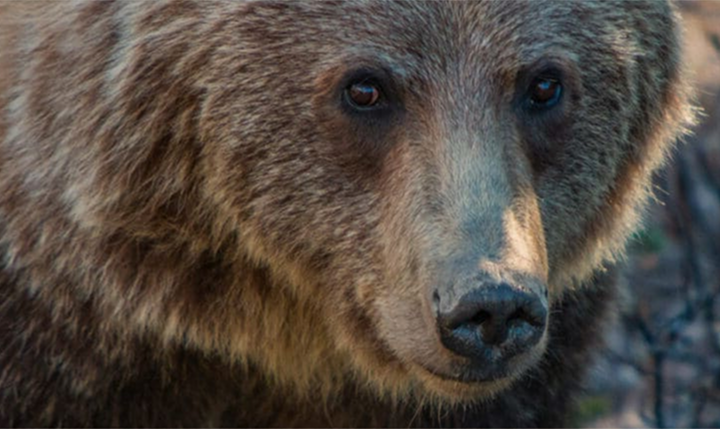Today, leaders, CEOs and presidents from 14 of the world’s largest environmental organizations are calling for a global goal to halt and reverse nature loss by 2030, and achieve full recovery by 2050.
They are calling for this goal to become the overarching Mission of the new 10-year Global Biodiversity Framework which will be agreed at the 2022 UN CBD-COP15 biodiversity summit in Kunming, China.
As delegates arrive in Geneva for the final round of talks prior to Kunming itself, the first face-to-face session since the pandemic began, a new paper urges negotiators to embrace clear, science-based targets and hold governments accountable to their commitments to halt and reverse today’s catastrophic loss of nature.
The aim of the two-week long Geneva meeting is to finalise the draft of the new Global Biodiversity Framework prior to final adoption in Kunming aiming to cement its potential as nature’s equivalent of the Paris Climate Agreement.
Backed by multiple NGOs including Yellowstone to Yukon Conservation Initiative, The Nature Conservancy, WWF International, Conservation International and Wildlife Conservation Society, as well as business coalitions such as Business for Nature and WBCSD , today’s paper calls on negotiators to revise the post-2020 Global Biodiversity Framework’s Mission to include the following goal:
“For the benefit of people and planet, take urgent action across society to halt and reverse biodiversity loss and achieve a nature positive world by 2030, so that there is more nature in 2030 than 2020, using biodiversity sustainably and ensuring the fair and equitable sharing of benefits from the use of genetic resources.”
The paper sets out how the world can track progress toward achieving a nature-positive world by 2030, through measurements designed to quantify the maintenance and improvement of natural processes, ecosystems and species over time. These include migration patterns; carbon sequestration and storage; ecological integrity of habitats; extinction risk of species; wildlife abundance; and genetic diversity.
Achieving a consensus on the ability to measure these trends is important for biodiversity conservation. Organizations are asking governments to commit to new targets and actions at a national level within one year of CBD-COP15.
Humanity faces multiple existential and interconnected threats: nature loss, climate change, pandemics, and inequitable human development patterns. There is a high-level measurable goal for climate change under the Paris Agreement and Glasgow Climate Pact: carbon neutrality (net zero) by 2050 with the 2030 goal of reducing global carbon dioxide emissions by 45 per cent relative to the 2010 level.
These organizations argue that a similar complementary and measurable global goal for nature is critical to drive action from all sectors in society, business, and governments, and unlock the additional finance needed to enable biodiversity’s recovery.
“By progressing towards making the world nature-positive by 2030, such as conserving and restoring habitat and corridors, together we can turn the protection and recovery of the natural world into one of humanity’s great success stories,” says Dr. Jodi Hilty, Y2Y’s president and chief scientist.
The Nature Positive goal proposes three basic milestones for success:
- Zero net loss of nature from 2020;
- Net positive improvement in nature by 2030, and
- Full recovery of nature by 2050.
To deliver against these goals, civil society groups recommend a series of actions including that we
- View all economic activity through a nature-positive lens;
- Cease activities that degrade or convert natural ecosystems, particularly those that are highly intact;
- Restore ecosystems wherever possible;
- Increase funding for protected areas and sustainably-stewarded Indigenous lands;
- Protect at least 30% of land, inland waters, and the ocean.
The Nature Positive by 2030 goal has already been adopted in other influential international fora, including the G7 Leaders 2030 Nature Compact and the Leaders’ Pledge for Nature.
List of signatories
- Patricia Zurita, Chief Executive Officer, BirdLife International
- Eva Zabey, Executive Director, Business for Nature
- Brian O’Donnell, Director, Campaign for Nature
- Mark Gough, Chief Executive Officer, Capitals Coalition
- M. Sanjayan, Chief Executive Officer, Conservation International
- Paul Polman, Co-Founder, IMAGINE
- Dr. James C. Deutsch, Chief Executive Officer, Rainforest Trust
- Jennifer Morris, Chief Executive Officer, The Nature Conservancy
- Dr. Cristián Samper, President & Chief Executive Officer, Wildlife Conservation Society
- Peter Bakker, President & Chief Executive Officer, World Business Council for Sustainable Development
- Ani Dasgupta, President & Chief Executive Officer, World Resources Institute
- Marco Lambertini, Director General, WWF International
- Jodi Hilty, President & Chief Scientist, Yellowstone to Yukon Conservation Initiative
- Johan Rockström, Director Potsdam Institute Climate Impact Research




